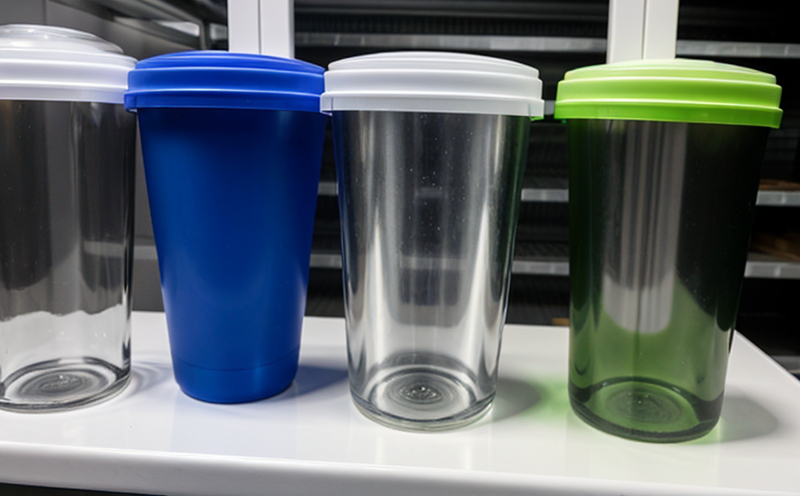ASTM D3569 Glass Container Seal Integrity Testing
The ASTM D3569 standard provides a comprehensive approach to evaluating the seal integrity of glass containers. This testing ensures that the container's seal remains intact, preventing contamination and maintaining product quality during storage and distribution.
Seal integrity is critical for ensuring the safety and efficacy of products contained within glass containers, especially those used in pharmaceuticals, food and beverage industries. The standard covers various aspects including the test setup, sample preparation, testing procedures, and the acceptance criteria for seal integrity.
The ASTM D3569 method involves filling the container with a specified liquid up to a certain level and then applying vacuum pressure to simulate real-world conditions during shipping or storage. The test checks if any leakage occurs under these conditions. If no leakage is detected, it indicates that the seal can withstand typical environmental stresses without compromising product integrity.
Preparation of specimens for ASTM D3569 testing requires following specific guidelines provided in the standard. Containers must be cleaned thoroughly to avoid external contamination affecting test results. The containers should also be filled with a specified liquid, which is then subjected to vacuum pressure according to the prescribed steps. Post-test inspection involves checking for any visible signs of leakage around the seal area.
The ASTM D3569 standard is widely recognized and accepted by regulatory bodies worldwide due to its rigorous testing procedures and consistent results. Compliance with this standard demonstrates a commitment to quality control and product safety, which can enhance brand reputation and customer trust.
By adhering to the ASTM D3569 guidelines during production processes, manufacturers ensure that their products meet stringent quality standards. This not only helps in maintaining regulatory compliance but also ensures consumer satisfaction by delivering safe and reliable products.
Applied Standards
The ASTM D3569 standard is one of the key benchmarks used globally for assessing glass container seal integrity. It aligns with other international standards such as ISO 11841 and EN 1470, which cover similar aspects but may have slight variations in methodology.
Compliance with ASTM D3569 ensures that the testing process adheres to recognized practices, thereby enhancing credibility among stakeholders. Manufacturers who follow these standards can expect more accurate results and greater confidence in their product quality.
The standard specifies detailed procedures for preparing specimens, conducting tests under controlled conditions, and interpreting outcomes. These precise instructions help eliminate variability between different labs performing the same test, leading to consistent and reliable data across various facilities.
Customer Impact and Satisfaction
Customers benefit significantly from rigorous ASTM D3569 testing because it provides peace of mind regarding product safety and quality. When suppliers demonstrate compliance with this standard, customers know they are receiving products that meet high standards for integrity.
For quality managers and R&D engineers responsible for developing new packaging solutions or improving existing ones, adherence to ASTM D3569 ensures consistency in performance metrics throughout the supply chain. This reduces risks associated with non-conforming materials or design flaws.
Compliance also supports procurement teams by ensuring that chosen suppliers meet strict quality criteria before awarding contracts. It fosters trust between buyers and sellers, promoting long-term relationships based on reliability and transparency.
International Acceptance and Recognition
The ASTM D3569 standard enjoys widespread international acceptance due to its robust framework for evaluating glass container seal integrity. Regulatory agencies in countries like the United States, Europe, Canada, Australia, and many others recognize this standard as a reliable measure of quality.
Many leading brands across various sectors rely on ASTM D3569-compliant testing results when making decisions about their packaging choices. This international acceptance enhances global market entry opportunities for companies that adhere to these standards.
The recognition extends beyond mere compliance; it signifies a commitment to excellence in product safety and quality assurance. Companies adopting ASTM D3569 practices often see increased demand from discerning consumers seeking reliable products backed by stringent testing protocols.





